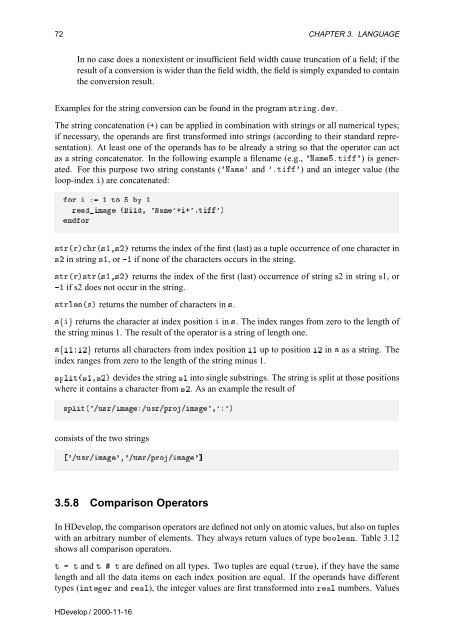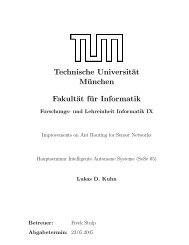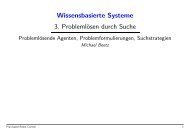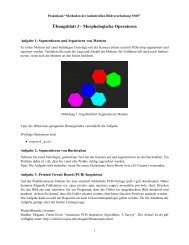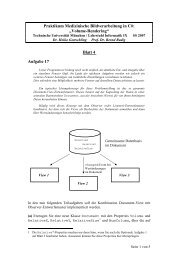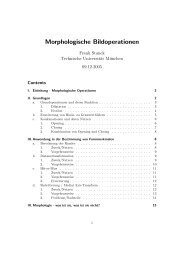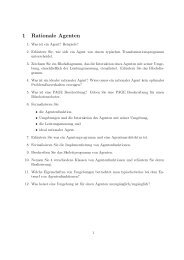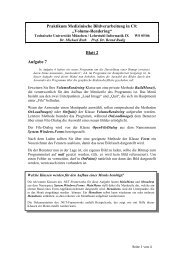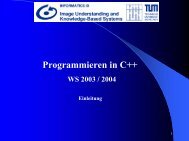You also want an ePaper? Increase the reach of your titles
YUMPU automatically turns print PDFs into web optimized ePapers that Google loves.
72 CHAPTER 3. LANGUAGE<br />
In no case does a nonexistent or insufficient field width cause truncation of a field; if the<br />
result of a conversion is wider than the field width, the field is simply expanded to contain<br />
the conversion result.<br />
Examples for the string conversion can be found in the program ×ØÖÒºÚ.<br />
The string concatenation (·) can be applied in combination with strings or all numerical types;<br />
if necessary, the operands are first transformed into strings (according to their standard representation).<br />
At least one of the operands has to be already a string so that the operator can act<br />
as a string concatenator. In the following example a filename (e.g., ³ÆѺس) is generated.<br />
For this purpose two string constants (³Æѳ and ³ºØ³) and an integer value (the<br />
loop-index ) are concatenated:<br />
ÓÖ ½ ØÓ Ý ½<br />
ÖÑ ´Ð¸ ³Æѳ··³ºØ³µ<br />
ÒÓÖ<br />
×ØÖ´ÖµÖ´×½¸×¾µ returns the index of the first (last) as a tuple occurrence of one character in<br />
×¾ in string ×½, or¹½ if none of the characters occurs in the string.<br />
×ØÖ´Öµ×ØÖ´×½¸×¾µ returns the index of the first (last) occurrence of string s2 in string s1, or<br />
¹½ if s2 does not occur in the string.<br />
×ØÖÐÒ´×µ returns the number of characters in ×.<br />
× returns the character at index position in ×. The index ranges from zero to the length of<br />
the string minus 1. The result of the operator is a string of length one.<br />
×½¾ returns all characters from index position ½ up to position ¾ in × as a string. The<br />
index ranges from zero to the length of the string minus 1.<br />
×ÔÐØ´×½¸×¾µ devides the string ×½ into single substrings. The string is split at those positions<br />
where it contains a character from ×¾. As an example the result of<br />
×ÔÐØ´³»Ù×ֻѻÙ×Ö»ÔÖӻѳ¸³³µ<br />
consists of the two strings<br />
³»Ù×ֻѳ¸³»Ù×Ö»ÔÖӻѳ℄<br />
3.5.8 Comparison Operators<br />
In <strong>HDevelop</strong>, the comparison operators are defined not only on atomic values, but also on tuples<br />
with an arbitrary number of elements. They always return values of type ÓÓÐÒ. Table 3.12<br />
shows all comparison operators.<br />
Ø Ø and Ø Ø are defined on all types. Two tuples are equal (ØÖÙ), if they have the same<br />
length and all the data items on each index position are equal. If the operands have different<br />
types (ÒØÖ and ÖÐ), the integer values are first transformed into ÖÐ numbers. Values<br />
<strong>HDevelop</strong> / 2000-11-16


